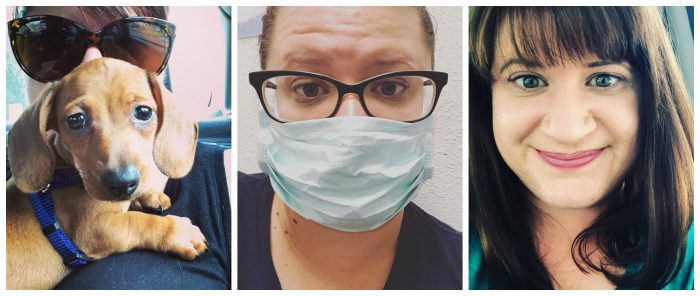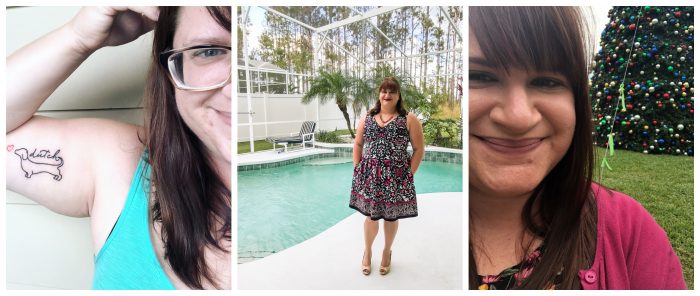I’ve written about this before, but this year, my focus is on writing my novel. I want to fully commit to the process, too. I don’t just want to squeeze in a few thousand words during my once-weekly writing dates, but actually make space in my life to get the writing done. Lately, that has meant giving myself a deadline of writing one chapter before my writing dates (we usually meet on Sunday mornings) so I can spend that time editing the chapter and not frantically writing to meet an arbitrary word count goal.
Since writing my novel is such a big part of my year, and because I really want to be open about the process and what it entails (and also so I can be kept accountable, ha), at the end of each month, I’m going to write a recap post that details my writing process week-by-week. I’ll include how many words I wrote and how many chapters I wrote, and I’m also going to include a section for the things I Googled while writing (as long as it doesn’t spoil anything in my book!) because I think that can be hysterical at times.
So, with all that said, here’s a recap of my January writing:
Week One (January 1-6, 2019)
- Words written: 1,939
- Chapters written: 1
- What I researched this week: “sample letter from an attorney regarding inheritance,” “library science programs,” “fall semester deadline for graduate school”
This was it! The week I had been waiting for! I spent weeks and weeks planning out my novel and preparing myself to really make this thing happen. And… I very nearly failed. I was thisclose to giving myself an “off” week, telling myself that it wasn’t a full week (lol, six days instead of seven… what a short week!) and I had built my schedule so that I would be finished with the book by late summer, so what was missing one week of work?! Man, I can excuse myself out of anything.
And then, on Friday of that week, I listened to a podcast episode where the author Georgia Hunter was a guest. She was talking about how she was in the process of starting her second novel and just getting started was the hardest part. It reminded me that everything I was experiencing was normal. It is hard to get started, no matter if you’re starting your first book or you’re a successfully published author starting a new manuscript. Writing is hard and getting started is even harder.
So, I opened up a blank Word document, labeled it 2019 WIP, and typed the first two words: “Chapter One.” From there, I started writing. I wrote in short increments of a page at a time and once I had finished my first chapter, I stopped. Between Friday evening and Sunday morning, my first chapter was written.
My plan was to use my weekly writing date with M. to read over the chapter I had written and make small edits (nothing major – just make sure it flowed well; I’ll worry about big changes once I finish my novel) before reading it aloud to M., but I ended up canceling our date because I was so tired in the morning (Eloise kept me up nearly all night long) and had a scratchy throat. I chose sleep over our writing date, which isn’t my usual MO but I just needed it that weekend.
Week 2 (January 7-13, 2019)
- Words written: 1,977
- Chapters written: .5
- Things researched: “what does it meant to be partner in a law firm,” “what is discovery in a criminal case”
Oy vey, this week was a toughie! I had such a busy week and weekend that I didn’t really have enough time to devote to my novel. That said, I wrote more words in week two than in week one, so I think chapter two is just much longer! So, I’m trying to give myself a bit of a break here. Life happens and I still managed to bang out nearly 2,000 words.
During one of my writing sessions, I accidentally scrolled to the beginning of my novel and quickly read through the first few paragraphs. It all sounded so terrible! And so, I started to downward spiral about my writing ability and if I was just fooling myself with this dream of publishing a novel. These downward spirals are just par for the course, and I know it’s not the last time I’ll have them. But man, they suck. And I hated that I was having my first downward spiral only two weeks into this writing process.
Writing this week felt TOUGH. There were times this weekend when I stared at my Word doc for 10 minutes, having no idea how to move the chapter forward. It was not fun.
During my writing date this week, I wanted to finish writing chapter two but it just didn’t happen. The writing just felt so hard this week, every sentence a struggle. I hope this isn’t a sign of things to come.
Week 3 (January 14-20)
- Words written: 4,047
- Chapters written: 1.5
- Things researched: “sign for leaving Massachusetts,” “Boston to Atlanta,” “Nipmunk State Forest to Boston,” “Boston to Floyd County GA,” “Boston, MA to Roanoke, VA,” “actresses who had babies in their 50s,” “treatment options for stage 4 breast cancer,” “how do doctors know if chemo is working for breast cancer,” “odds of surviving stage 4 breast cancer,” “how do people die from breast cancer,” “end of life symptoms for cancer patients”
Feeling so much better about writing this week. I may be able to finish this thing after all! I had a pretty plan-free weekend, which allowed me to get a lot of writing done. I finished the chapter I was supposed to write last week AND wrote chapter three as well. Woop! I’m back on track! It feels good and I’m enjoying where this story is going. (And, also, as evidenced by my research log above, there was a lot of research to be done this week, so I’m feeling good that I got so much writing done that involved a lot of research.)
I was able to use my writing date this week to review chapter one and make some slight edits. It took me nearly the entire writing date to read through it, though. I’m still hoping I can somehow read through chapters two and three at next week’s writing date and be nearly caught up. I also outlined what the next chapter will look like. I have a full summary of the book already planned out, but want to take each chapter one step at a time so I can let the flow of the story take me to where it needs to go.
Week 4 (January 21-27)
- Words written: 2,364
- Chapters written: 1
- Things researched: “funny names for a yoga studio,” “chambray shirt”
I was nervous about writing this weekend because I planned to do the #24in48 readathon and while I was committed to that challenge, writing came first. M. and I had also planned to meet on Friday night to write, but then her plans changed and we met on Sunday morning instead, so that was good because it meant I wouldn’t have to spend the writing date writing. (That sounds weird, ha, but you know what I mean.)
I wrote chapter three fairly easily and it’s the chapter where my hero and heroine finally meet so that was super fun to write. I definitely want to rework that scene a bit so it’s a little more dramatic, but it’s a pretty solid start for them, I think.
During this week’s writing date, I edited chapter two, which is the longest chapter I’ve written so far, and that took me the entire two hours. I decided to change the type of character the heroine’s boss was because after reading over the way I wrote him originally, it really wasn’t working for me.
After working on chapter two, I read it aloud to M. and she had some really great feedback for me, mainly about the way I had written one of my secondary characters. Her feedback was so helpful, and it made me do some brainstorming about this character and the purpose for putting him in the story.
Tell me I’m not the only one who’s basically a pro at downward spiraling! What do you do to combat the anxious thoughts?







